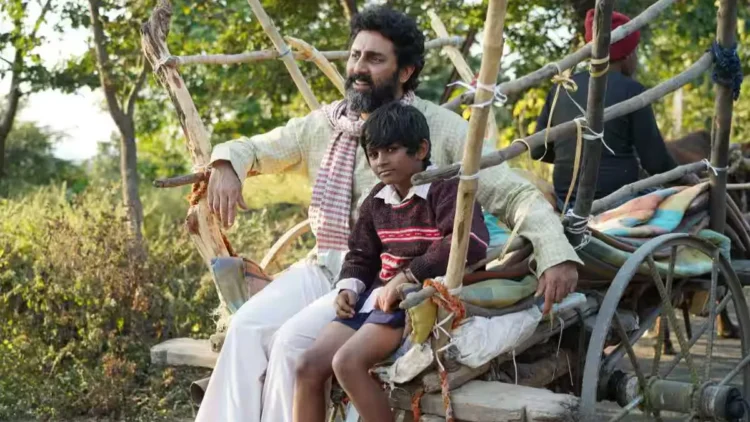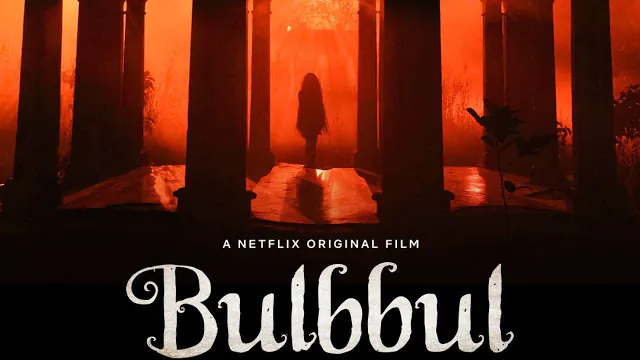Not many are aware, but in 2019, a Tamil masterpiece named KD Engira Karuppudurai quietly made a notable impact. Its heartfelt narrative captured audiences and rightfully garnered widespread acclaim from critics. Fast forward to 2025, and the same director, Madhumitha, along with her creative team, presents Kaalidhar Laapata—a Hindi adaptation that not only retells the original tale but also reinterprets it.
Story
The narrative unfolds around Kaalidhar (Abhishek Bachchan), a man in his late forties or early fifties diagnosed with early-stage Alzheimer’s. Rather than support him, his brothers view him as a burden, devising a cruel plan to abandon him at the Kumbh Mela. By chance, Kaali overhears their plot. Heartbroken and humiliated, he chooses to leave on his own terms.
A twist of fate lands him in Bhojpur, where he encounters a streetwise and initially headstrong boy named Ballu (Daivik Baghela). What begins as conflict gradually evolves into a profound connection. Inspired by Kaali’s narratives, Ballu creates a wishlist to help fulfill all of Kaali’s forgotten dreams. Together, the duo embarks on a journey filled with joy, self-discovery, healing, and, ultimately, parting ways.
Meanwhile, Kaali must evade a Bhoole Bhatke Stall officer sent by his family to retrieve him, adding an element of tension and urgency to their otherwise lighthearted adventure. Kaali’s eventual choice and the journey toward rediscovering his identity form the emotional core of the film’s latter half. Trust me, there are moments that will linger with you long after the credits conclude.
Performances
Abhishek Bachchan delivers an outstanding performance in this film. Following the setbacks of Housefull 5, this role serves as his redemption. He carries the film with maturity, nuance, and profound emotional depth—arguably his finest performance in recent times.
Daivik Baghela is an absolute revelation, embodying the film’s heart with playfulness, anger, care, unpredictability, and an undeniable charisma. His comedic timing, emotional depth, and commanding screen presence position him as a standout star. Nimrat Kaur, despite her limited screen time, contributes grace and groundedness.
Mohammed Zeeshan Ayyub and Vishwanath Chatterjee consistently deliver reliable performances, while the supporting cast—Madhulika Jatoliya, Priyank Tiwari, among others—brings authenticity to their roles.
Behind the scenes
The soundtrack of Kaalidhar Laapata provided by Amit Trivedi deserves special recognition. The friendship anthem between Kaali and Ballu is heartwarming, and the romantic track with Nimrat Kaur is seamlessly integrated into the storyline. Both songs function not only as standalone pieces but also propel the narrative forward. The lyrics by Geet Sagar resonate and linger long after listening.
The cinematography of Gairik Sarkar is sharp and organic, with rural landscapes brimming with life, imbuing shadows and pan frames with significance. The editing is mostly precise; however, the film’s beginning could benefit from improvement.
The production design is earthy, aligning perfectly with the film’s tone. The background score enhances the narrative, complementing emotions without being overpowering, stepping back in moments where silence speaks volumes.
The dialogues penned by Amitosh Nagpal are striking—often poetic and frequently profound. A notable line is: “Mandir ho ya shamshan, phoolon ka kaam to chalta rahega na.” Kaali’s final address serves as another highlight. “Paise kyun kamane hai?” “Bas, kamane ke liye kamane hai.” This haunting reminder illustrates how one might spend a lifetime earning for family, only to realize there’s nothing earned for themselves. It’s this introspective honesty that gives Kaalidhar Laapata its emotional weight.
Final Verdict
What truly distinguishes Kaalidhar Laapata is its commitment to avoiding a formulaic remake approach. The screenplay embraces risks—some subtle, others bold—and most yield positive results. The emotional landscape shifts dramatically with the change in protagonist age. The Alzheimer’s element infuses a sense of urgency and rationalizes his choice to walk away—not only from his family but from a life where he was valued solely for his usefulness. His quiet departure isn’t an act of surrender; rather, it symbolizes a reclamation of dignity. The abandonment is not depicted as tragic, but rather as transformative. This thematic inversion serves as the film’s masterstroke.
The film also explores romantic themes through Kaali’s fleeting interactions with Nimrat Kaur’s character, who, although briefly present, leaves a sweet impression. Their chemistry is understated and steeped in nostalgia rather than passion. It introduces reflective depth while rendering certain moments somewhat predictable and occasionally melodramatic. The narrative sometimes falters under the weight of its emotional ambitions, particularly when trying to balance numerous sentiments simultaneously. However, it swiftly regains its footing thanks to superb writing.
Director Madhumitha excels in her role; she doesn’t merely remake her own film—she reinvents it for a new audience, culture, and emotional framework. It’s akin to transplanting the essence of the original into an entirely different vessel. While the humor may not resonate as consistently here as in the original, the film’s emotional depth and simplicity more than compensate for that. In summary, Kaalidhar Laapata is a poignant film about prioritizing dignity over dependence, joy over obligation, and selfhood over servitude.
Kaalidhar Laapata is streaming now on popular OTT platform Zee5.























